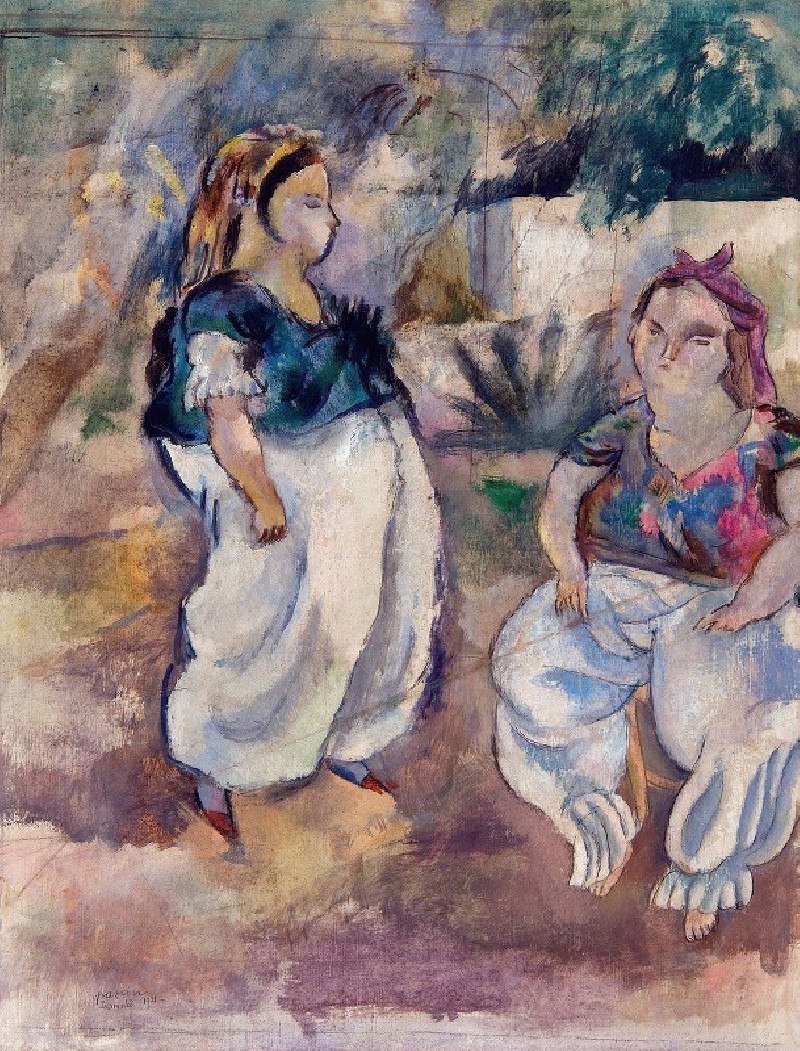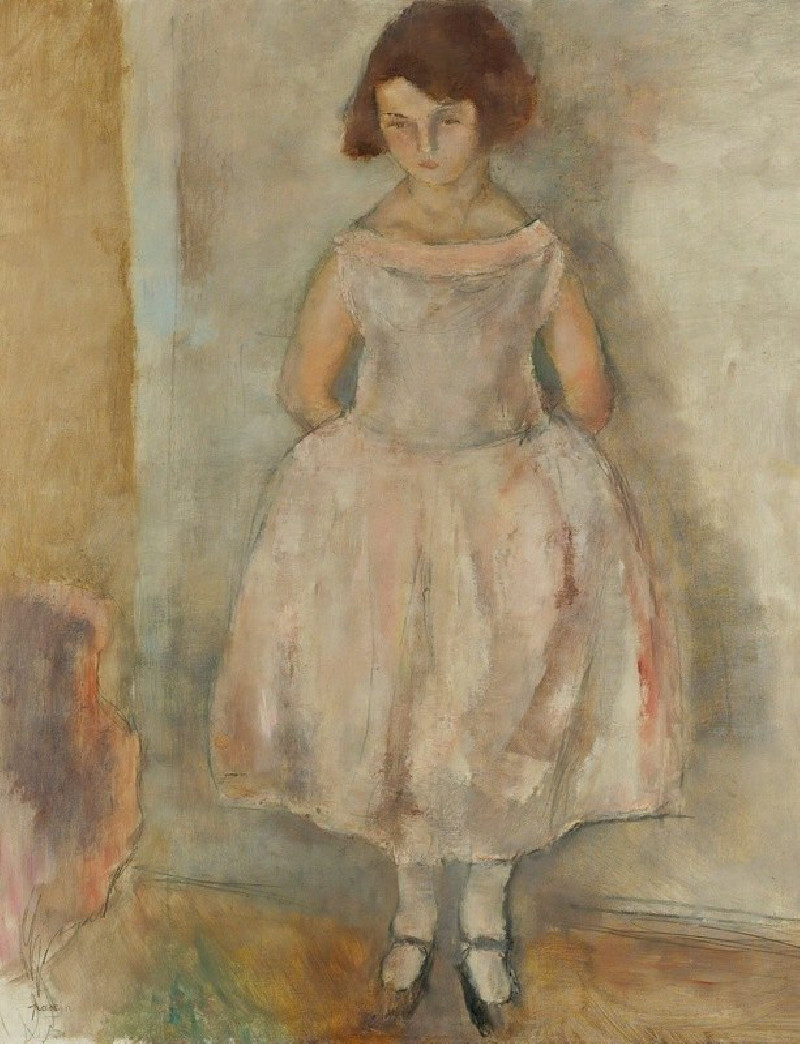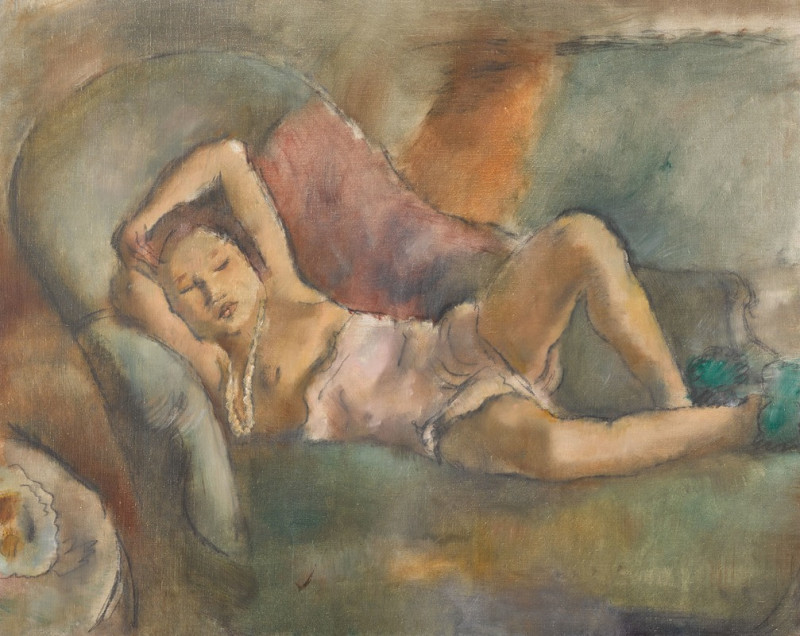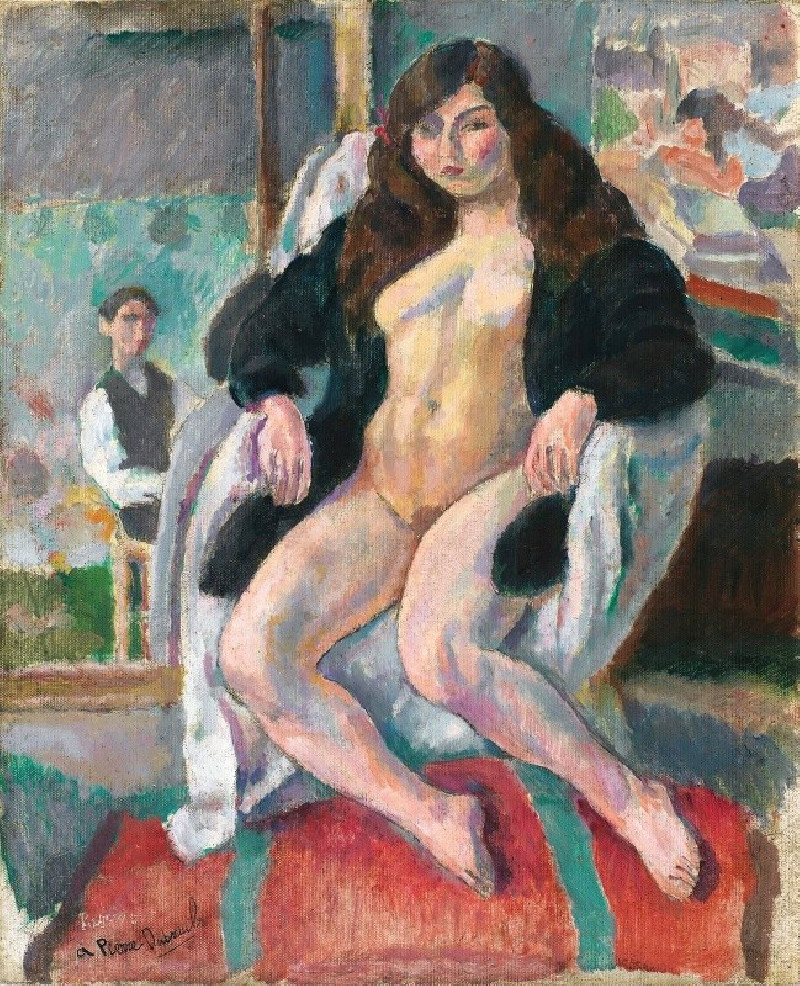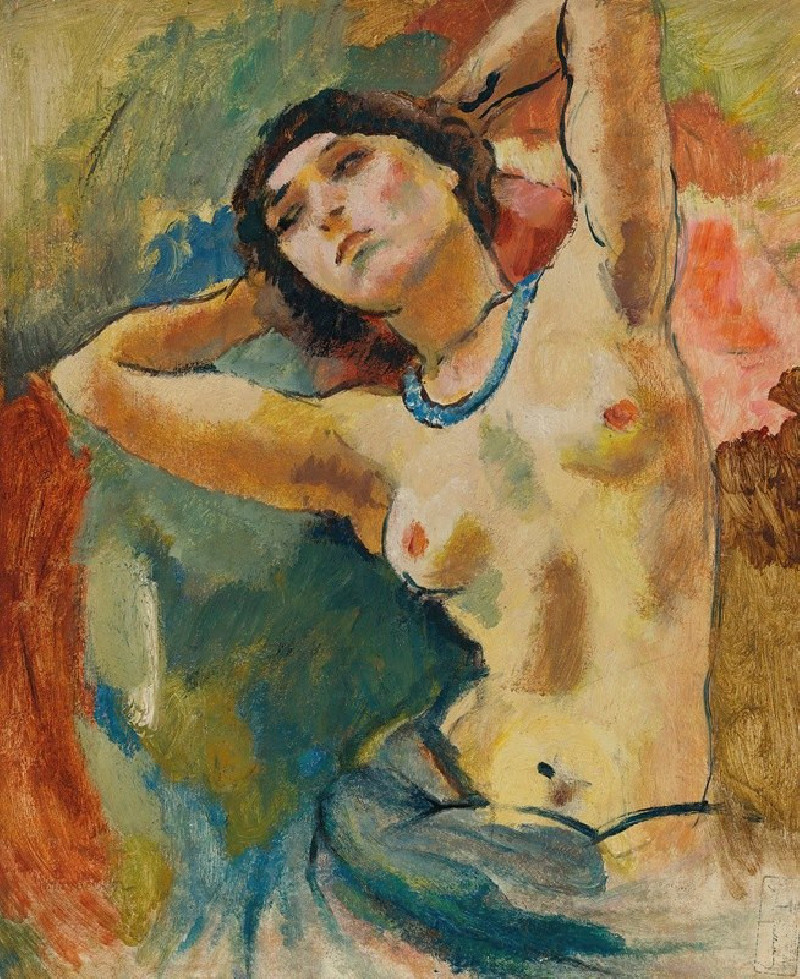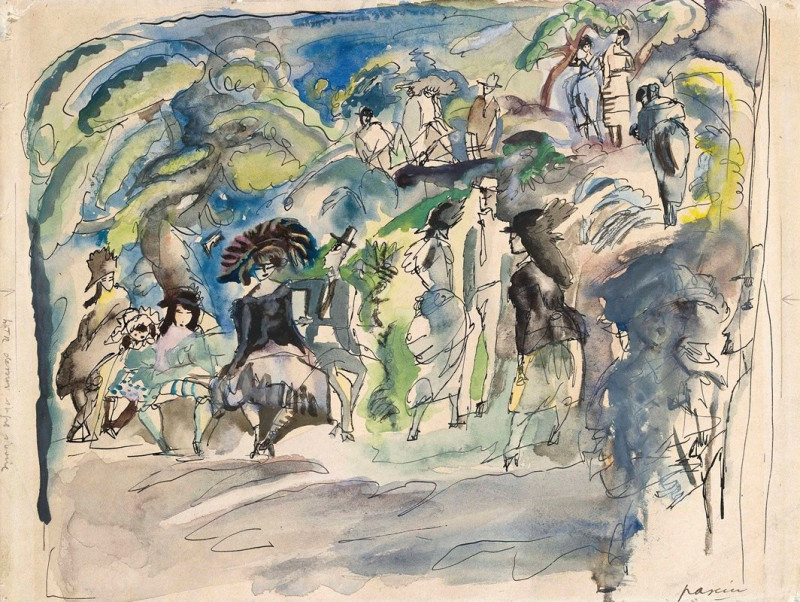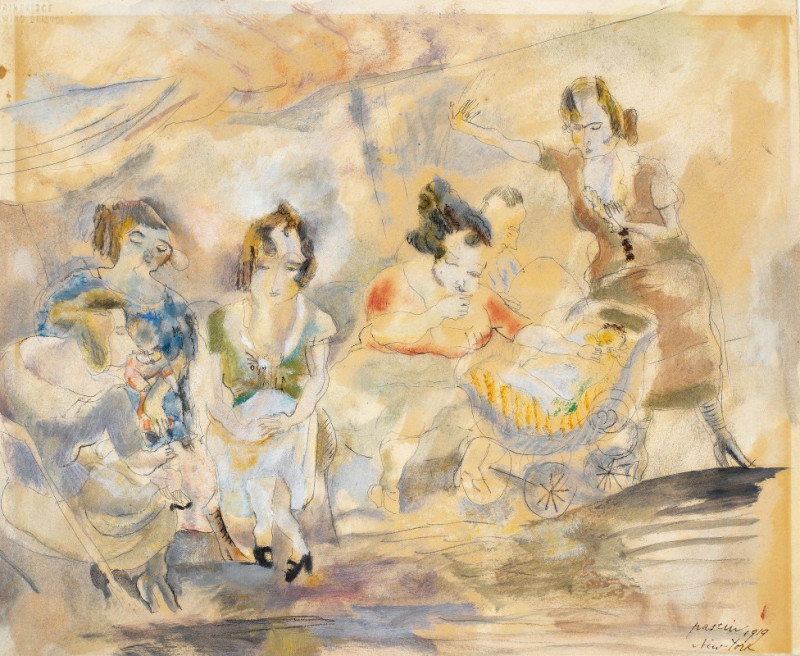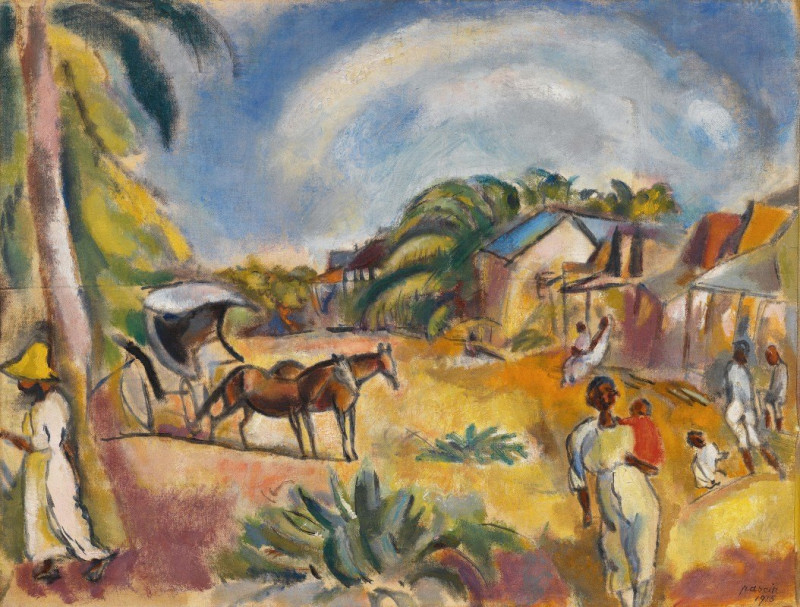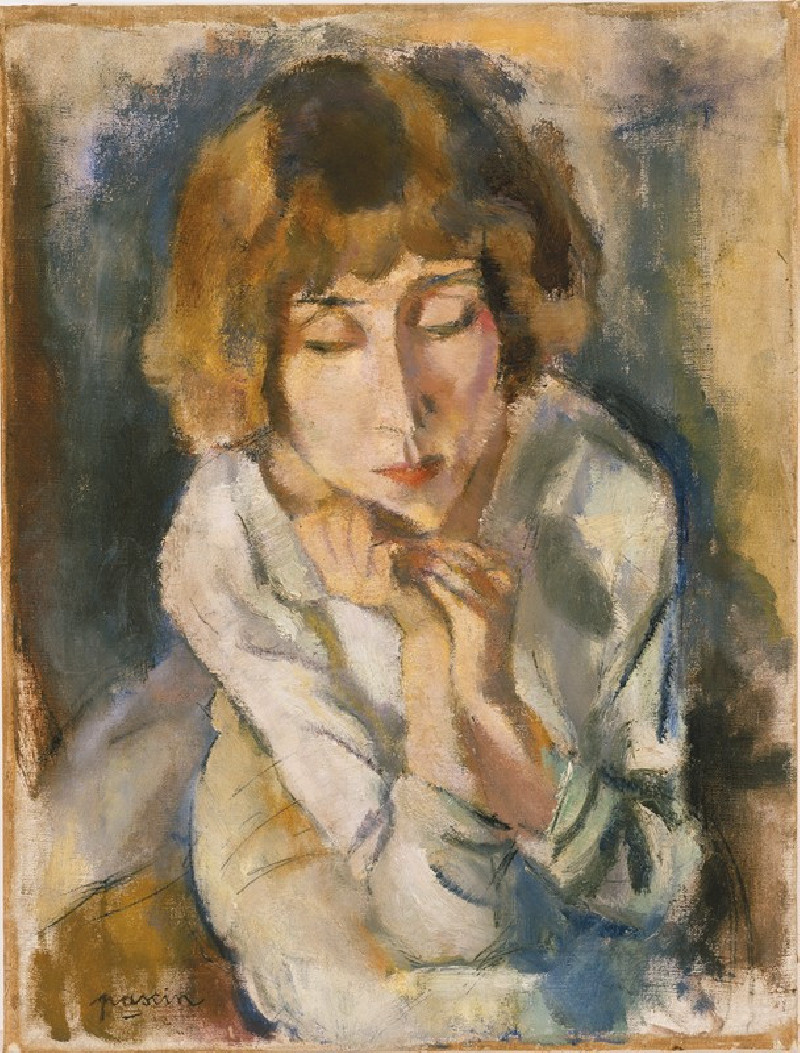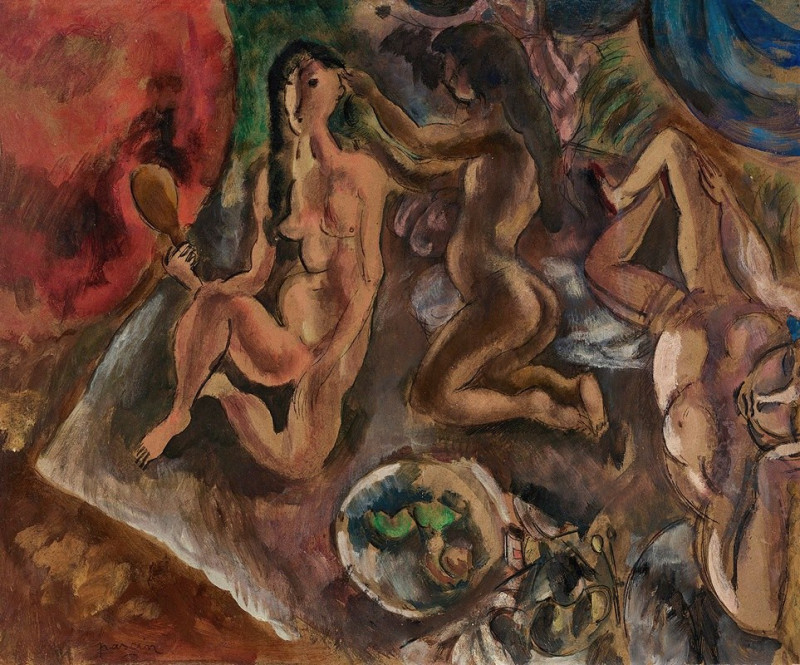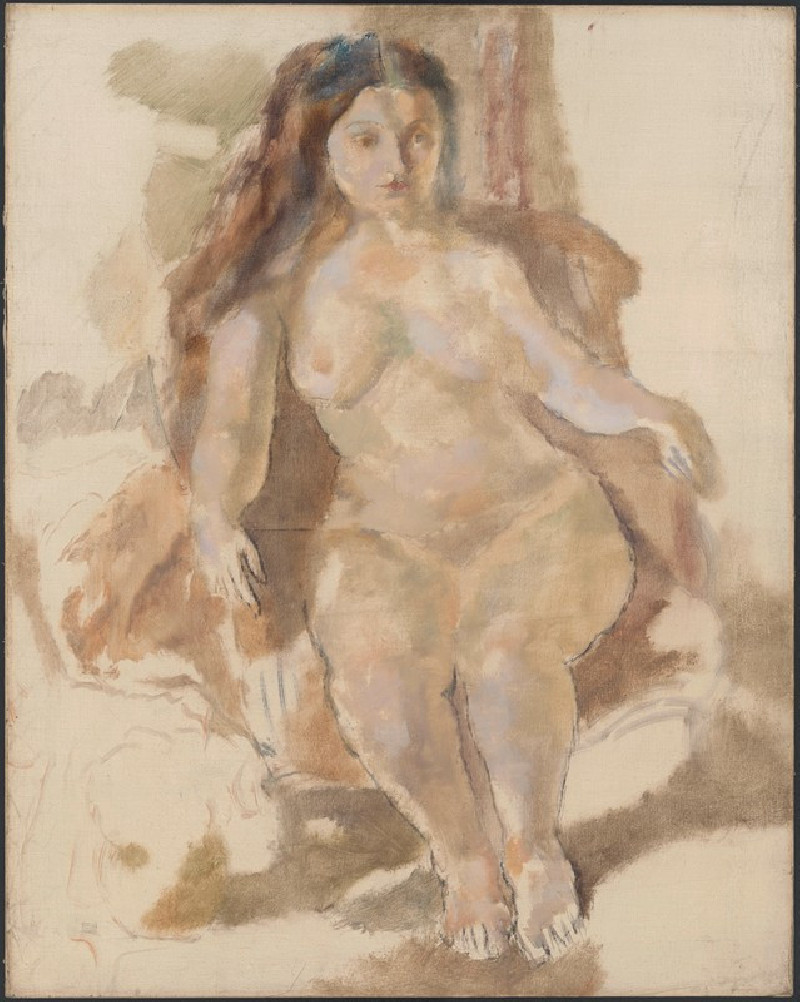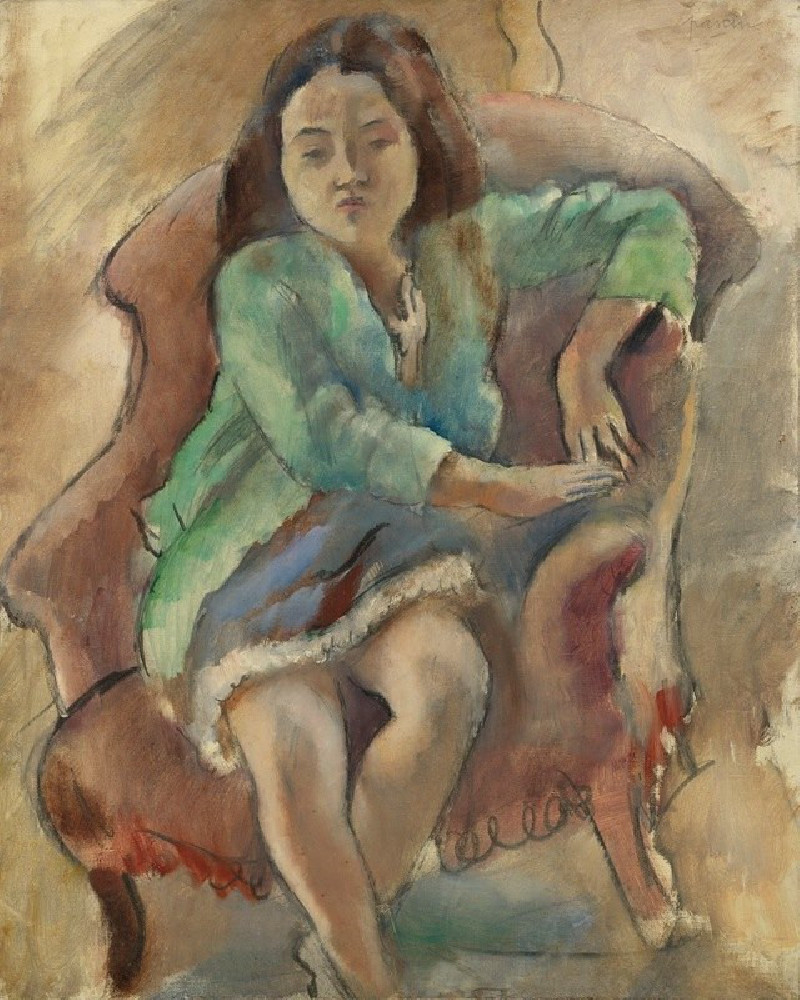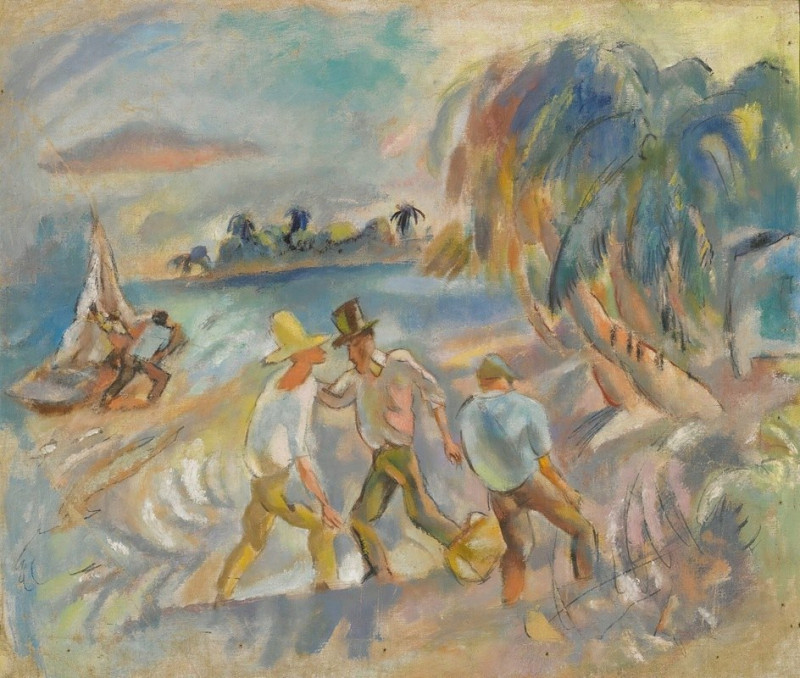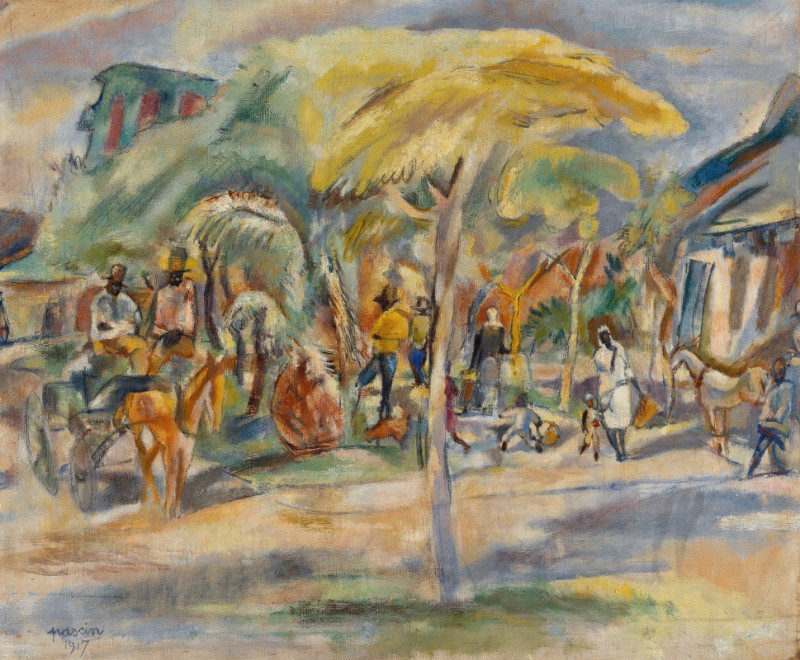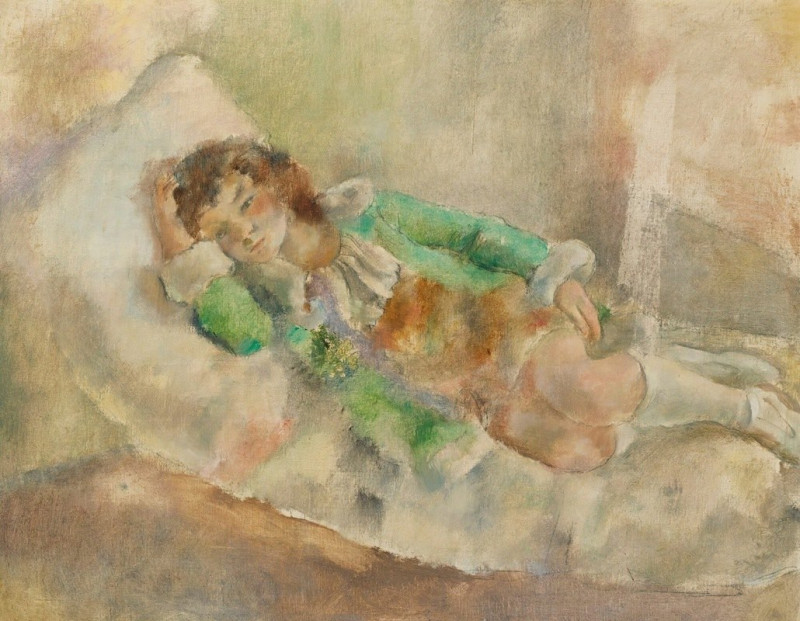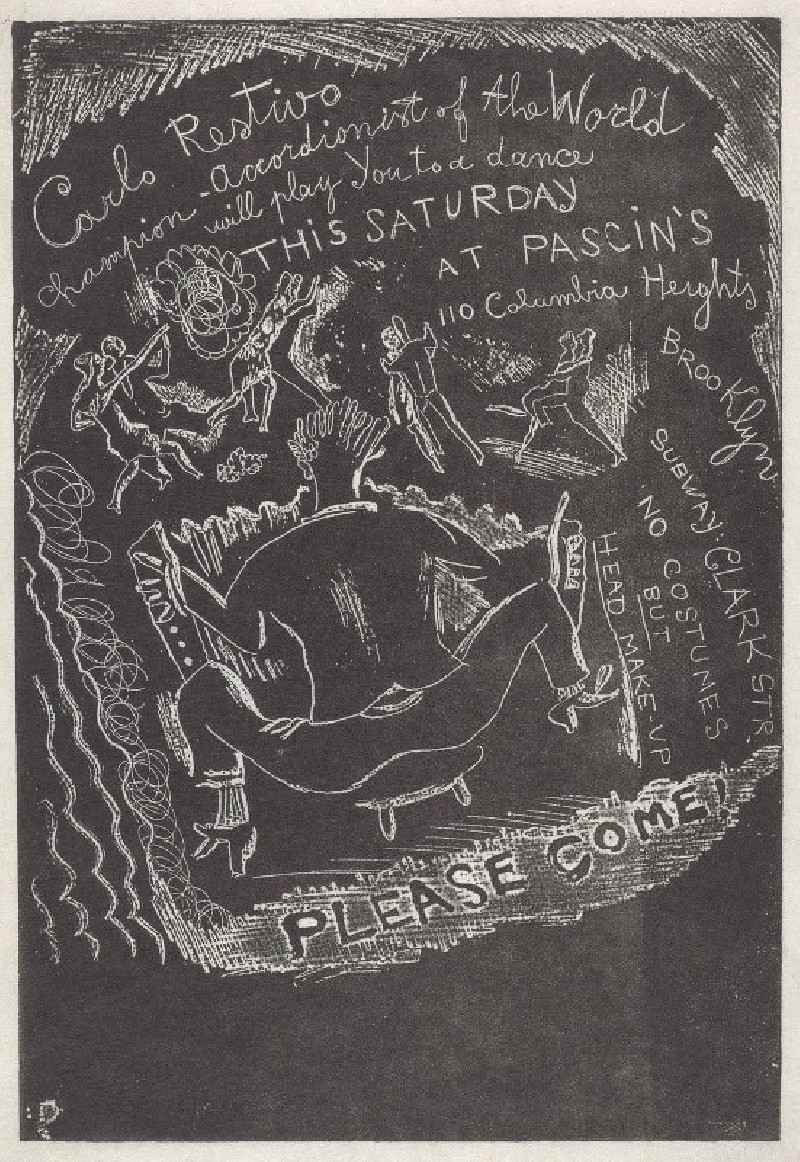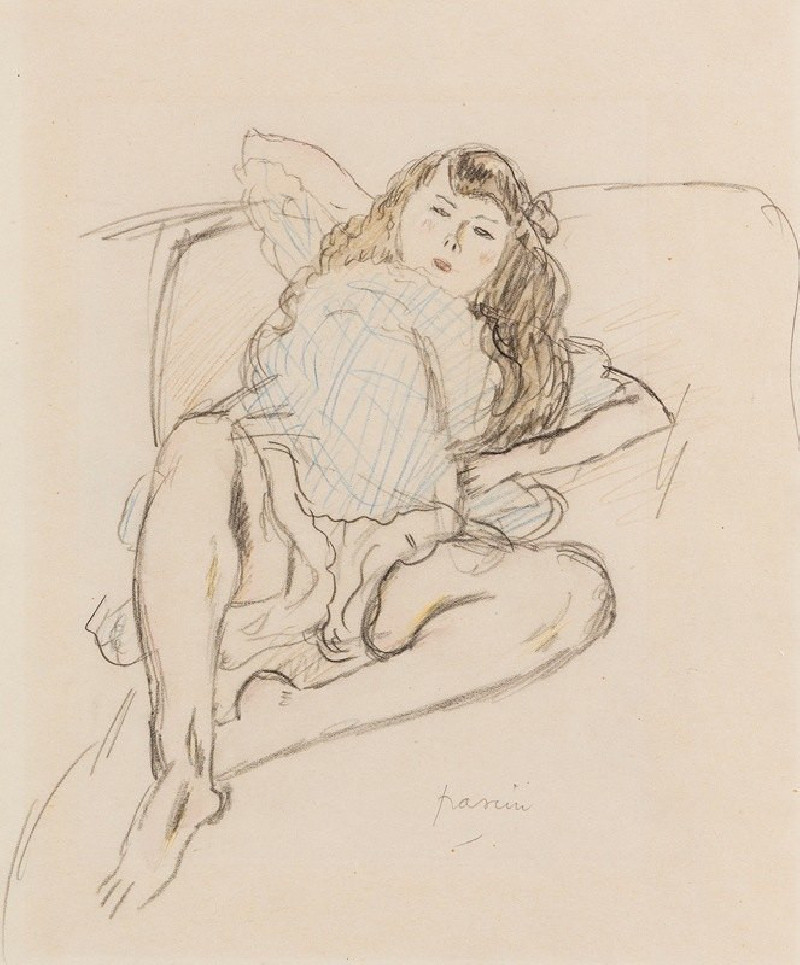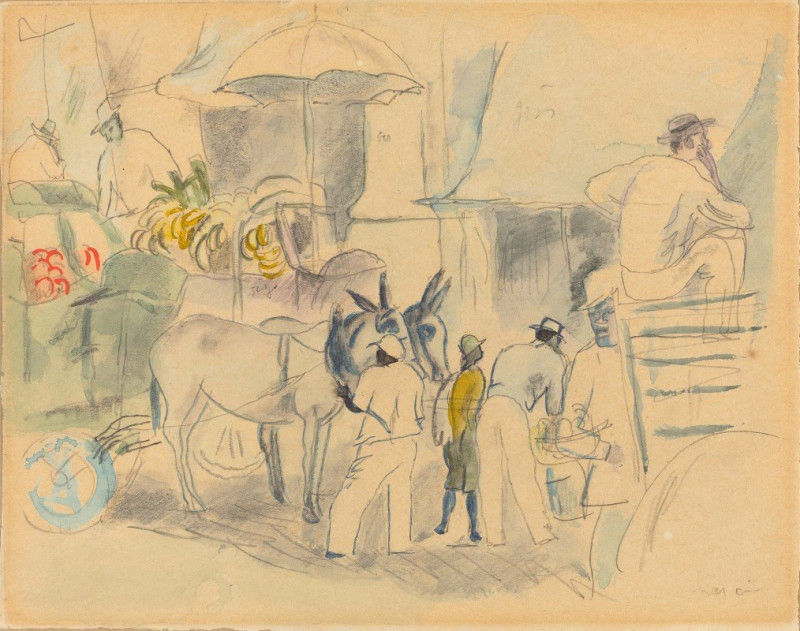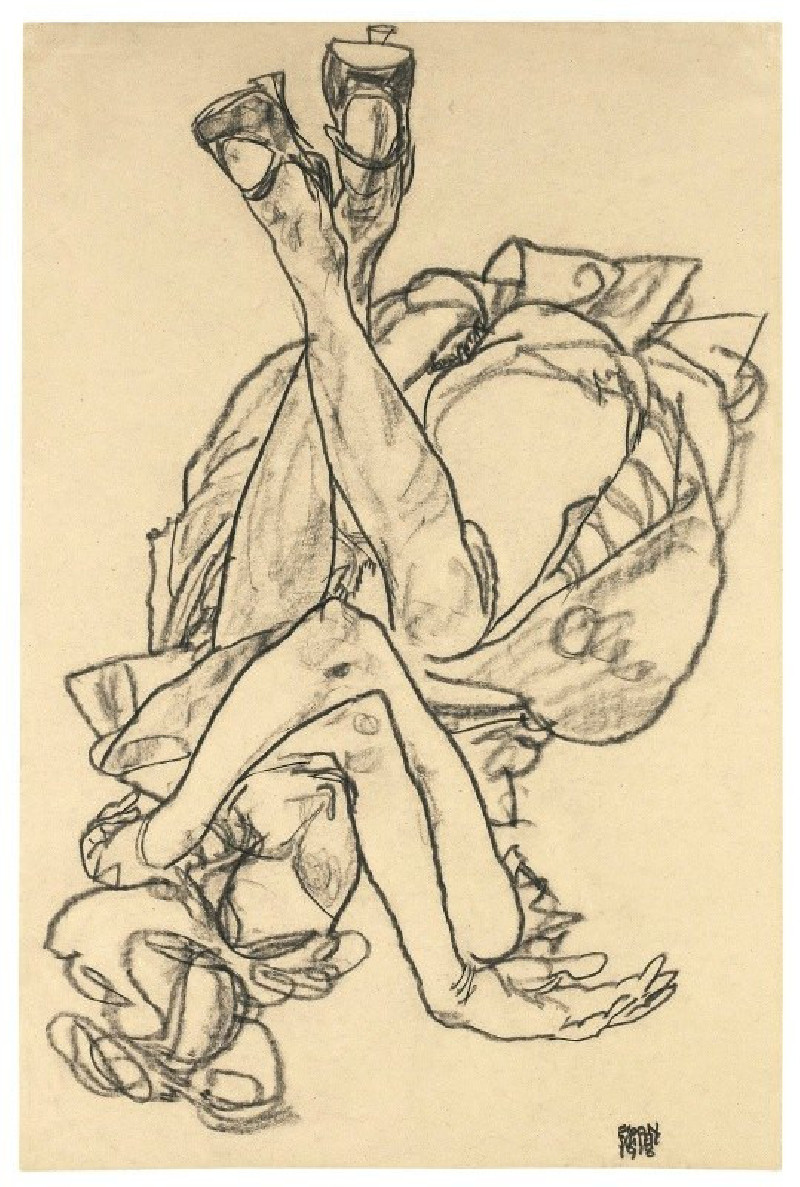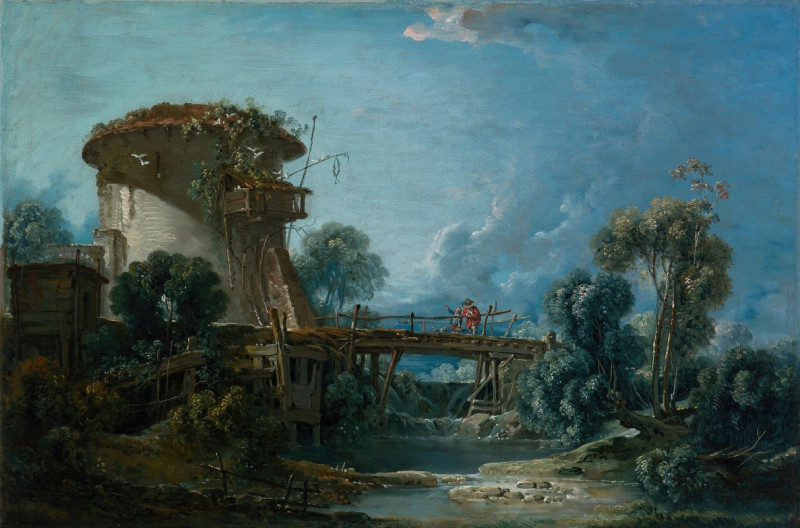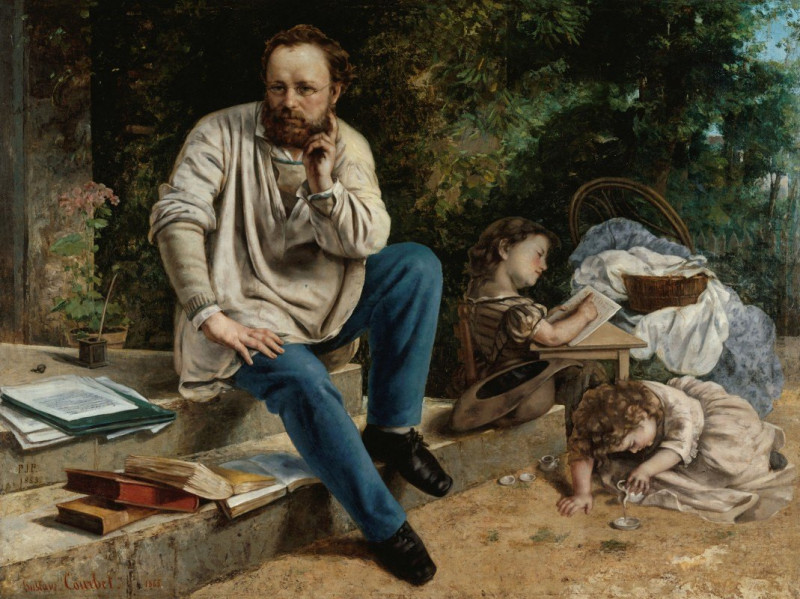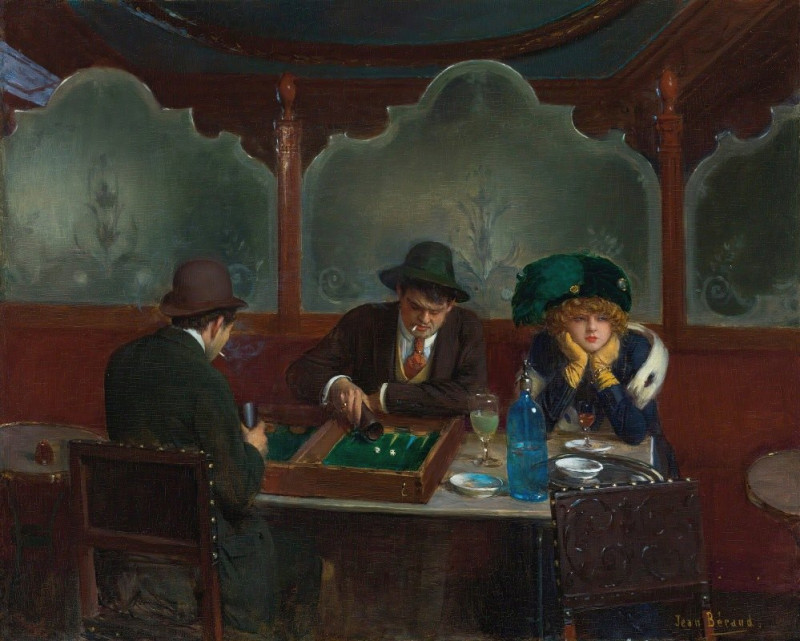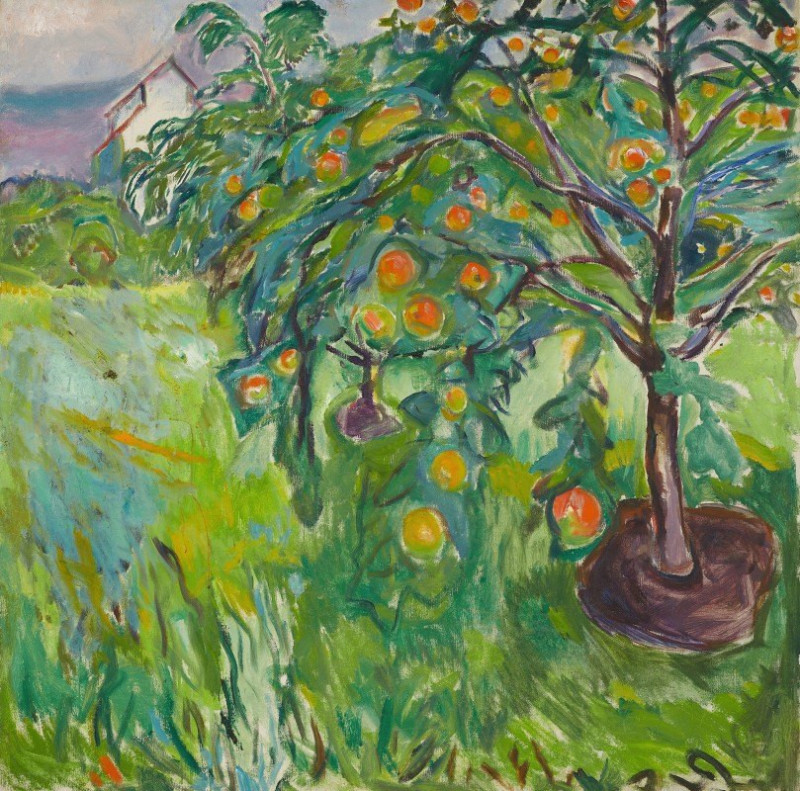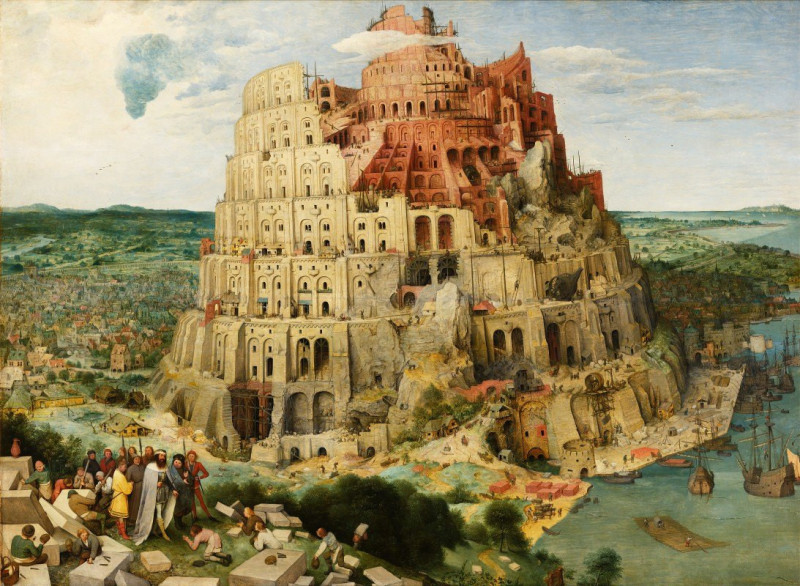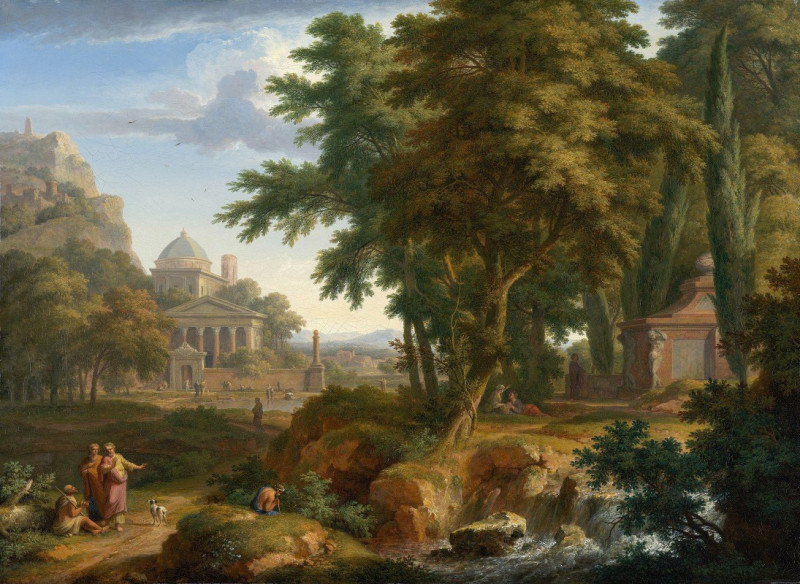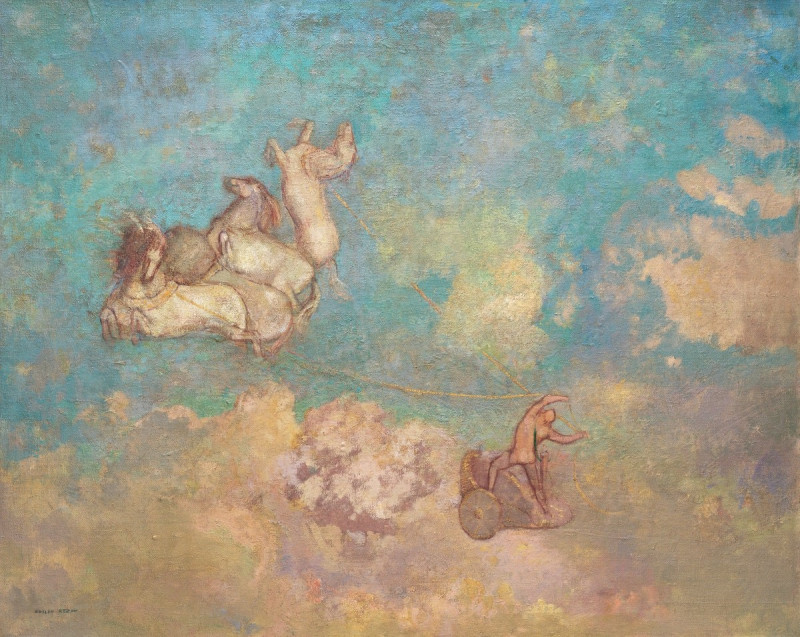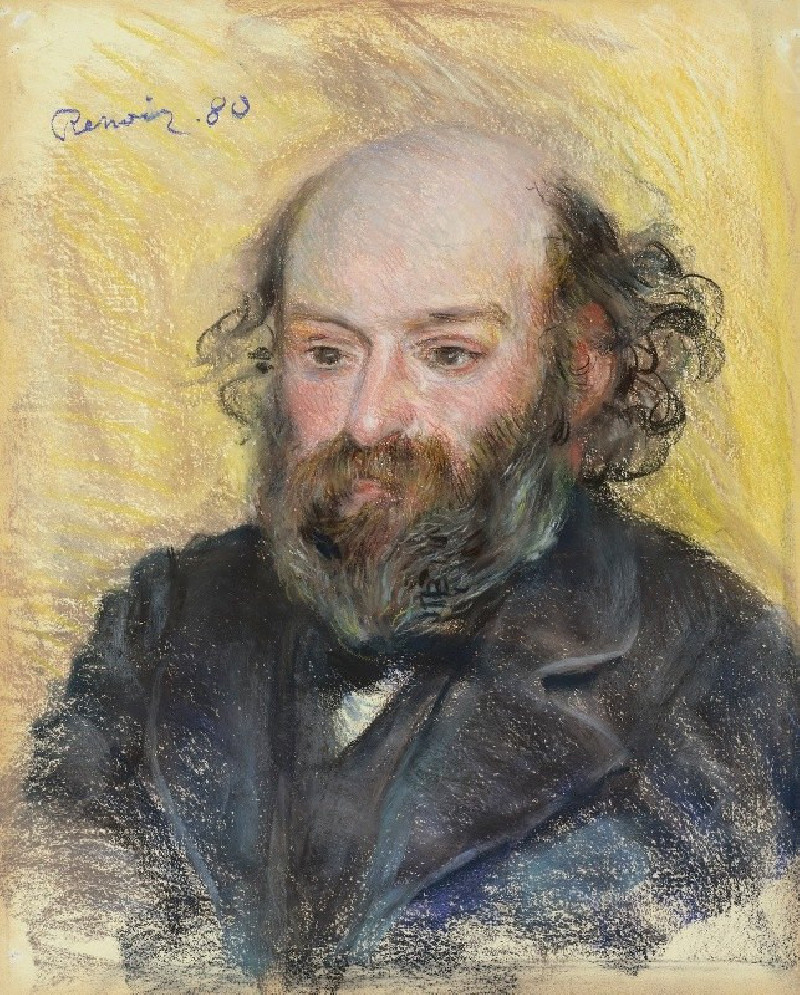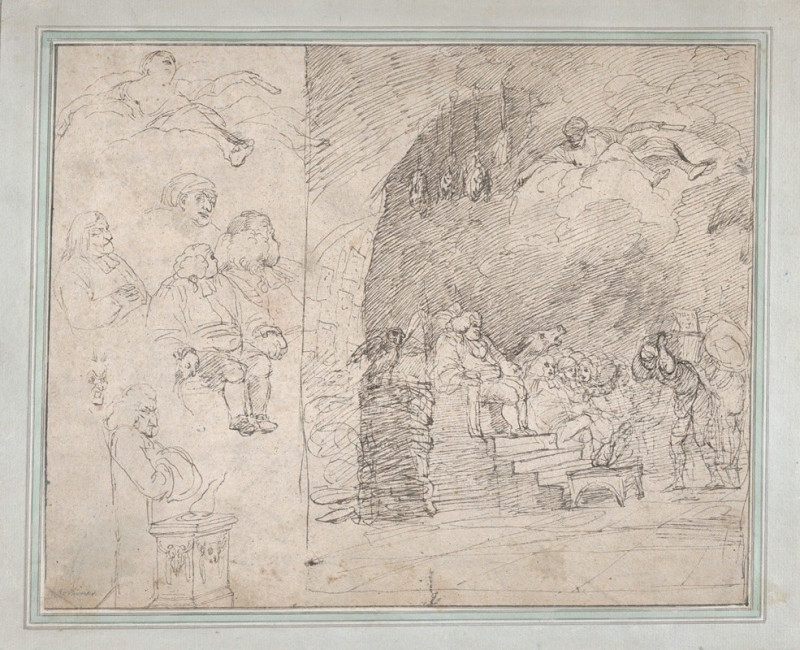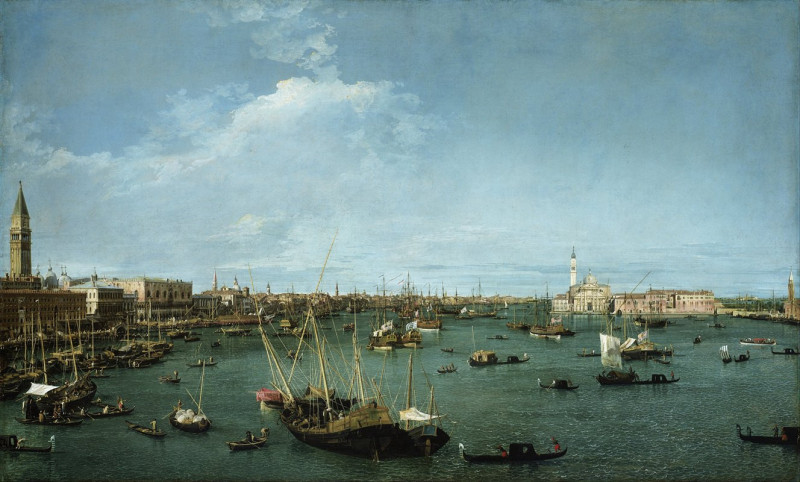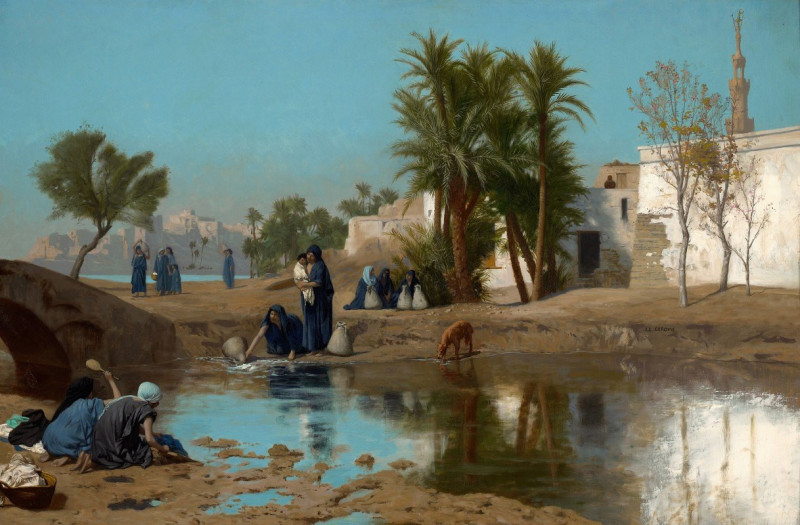Les Tunisiennes (1921)
Technique: Giclée quality print
Recommended by our customers
More about this artwork
"Les Tunisiennes" by Jules Pascin, painted in 1921, captures the essence and vitality of Tunisian culture through the depiction of two local women. The scene is set outdoors, possibly in a courtyard or a market area, where these figures are entrenched in a casual moment, likely a conversation or a pause in their daily activities.The painter's mastery in the use of soft yet vibrant colors subtly brings out the warmth of the setting and reflects the natural light typical of the Tunisian landscape. The woman on the left stands erect, dressed in a flowing gown that accentuates her form, with a composed poise that contrasts with the seated figure on the right. This figure seems more relaxed and perhaps more weary, with her attire draped casually around her, including detailed, colorful patterns that speak to local textile traditions.Pascin’s brushwork is loose and impressionistic, which adds a dreamlike quality to the image and suggests the fleeting, ephemeral moments of daily life that he sought to capture. The background is a wash of greens and blues, indicative of foliage and perhaps distant architecture, all rendered in a manner that suggests a blend of observation and memory.Through "Les Tunisiennes," Pascin not only explores the human form with sensitivity and insight, but also offers a window into the cultural fabric of Tunisia during the early 20th century, marked by an appreciation for its people and their environment.
Delivery
Returns
Nudes, street scenes and landscapes of women and tropical locations by Bulgarian-born American painter Jules Pascin (1885-1930). Born to an affluent family, Pascin was educated in Austria and Germany before moving to Paris in 1905. It was there that he became associated with the Modernist movement. He attached himself to the human condition and was known for painting portraits of nude and half-dressed women. He stands in the grand tradition of the romantic, bohemian artist.

